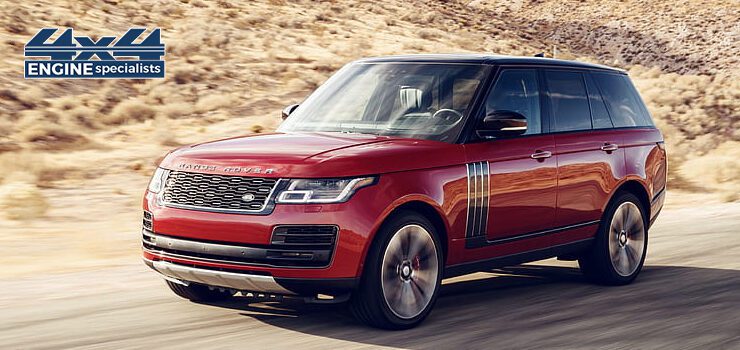Introduction:
In the realm of automotive engineering, the pursuit of efficiency is paramount. With environmental concerns and fuel economy regulations shaping the landscape, manufacturers are constantly innovating to minimize emissions and maximize fuel efficiency. One such innovation is the intelligent stop-start system, a feature integrated into modern vehicles like the Reconditioned Range Rover Engine. We delves into the role of this technology within the Range Rover operations, exploring its functions, benefits, and impact on driving experience.
Understanding the Intelligent Stop-Start System
The intelligent stop-start system is a sophisticated technology designed to automatically shut off the engine when the vehicle comes to a stop, such as at traffic lights or in heavy traffic. It then restarts the engine swiftly and seamlessly when the driver releases the brake pedal or engages the clutch, allowing for immediate acceleration.
Mechanism Behind the System
At its core, the intelligent stop-start system relies on various sensors and control modules to monitor key parameters such as vehicle speed, engine temperature, battery charge, and driver input. These inputs inform the system’s decision-making process, determining when it’s appropriate to shut off the engine and when to restart it.
Battery Management and Energy Recuperation
One critical aspect of the stop-start system is its management of the vehicle’s battery. When the engine is off, the system ensures that essential vehicle functions such as lights, air conditioning, and infotainment systems remain operational without draining the battery excessively. Additionally, some systems incorporate energy recuperation technology, which captures and stores energy generated during braking or deceleration to recharge the battery.
Benefits for Fuel Economy and Emissions Reduction
By reducing unnecessary idling time, the intelligent stop-start system significantly improves fuel economy, especially in urban driving conditions characterized by frequent stops and starts. This not only translates to cost savings for drivers but also contributes to lower greenhouse gas emissions, aligning with sustainability goals and regulatory standards.
Enhanced Driver Comfort and Convenience
Beyond its environmental and economic advantages, the stop-start system enhances the overall driving experience by minimizing noise and vibration when the vehicle is stationary. Drivers benefit from a quieter cabin and smoother operation, particularly in urban environments where traffic congestion is common.
Integration with Vehicle Dynamics and User Preferences
Modern iterations of the intelligent stop-start system offer customizable settings that allow drivers to tailor its behavior to their preferences. Some vehicles feature adaptive algorithms that adjust the system’s operation based on driving style and traffic conditions, optimizing both efficiency and comfort.
Addressing Concerns and Limitations
While the intelligent stop-start system offers numerous benefits, it’s not without its challenges. Some drivers may find the engine restarts slightly intrusive or perceive a delay in responsiveness, particularly in situations requiring rapid acceleration. However, continuous refinement and technological advancements aim to mitigate these concerns.
Future Outlook and Evolution of Stop-Start Technology
As automotive manufacturers continue to innovate, the intelligent stop-start system is expected to evolve further. Integration with hybrid and electric powertrains, improved battery technology, and advanced predictive algorithms are among the developments poised to enhance the efficiency and effectiveness of stop-start systems in the years to come.
Conclusion:
In the quest for greater efficiency and sustainability, the intelligent stop-start system emerges as a significant advancement in automotive technology. Within the Range Rover 2.0 engine, this system not only improves fuel economy and reduces emissions but also enhances driver comfort and convenience. As automotive engineering continues to progress, the evolution of stop-start technology promises even greater benefits for drivers, the environment, and society as a whole.


